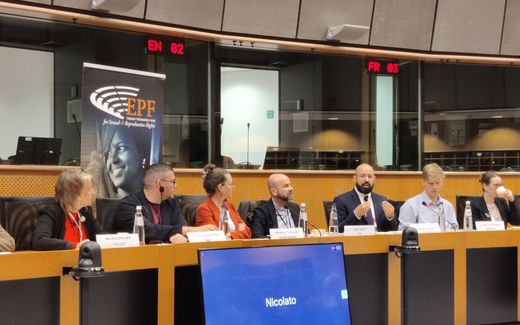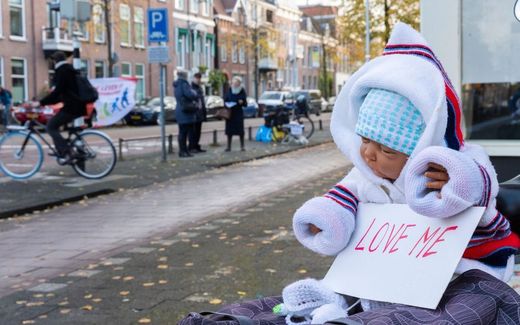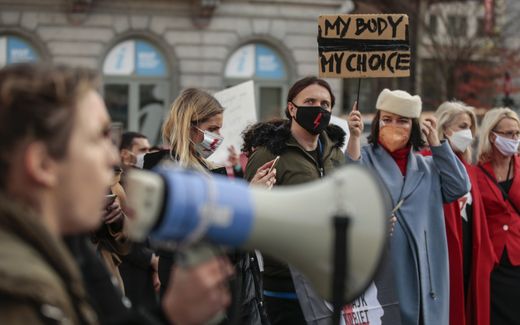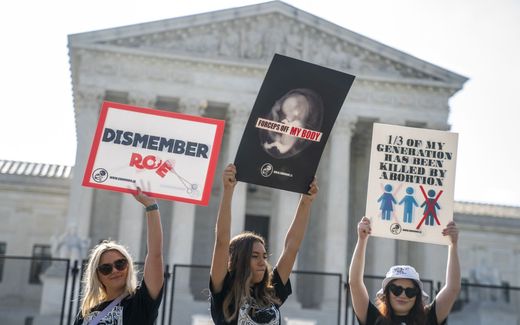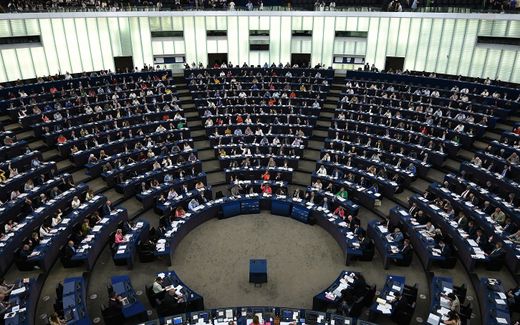Analysis: Will abortion enter into the treaties after the EP vote?
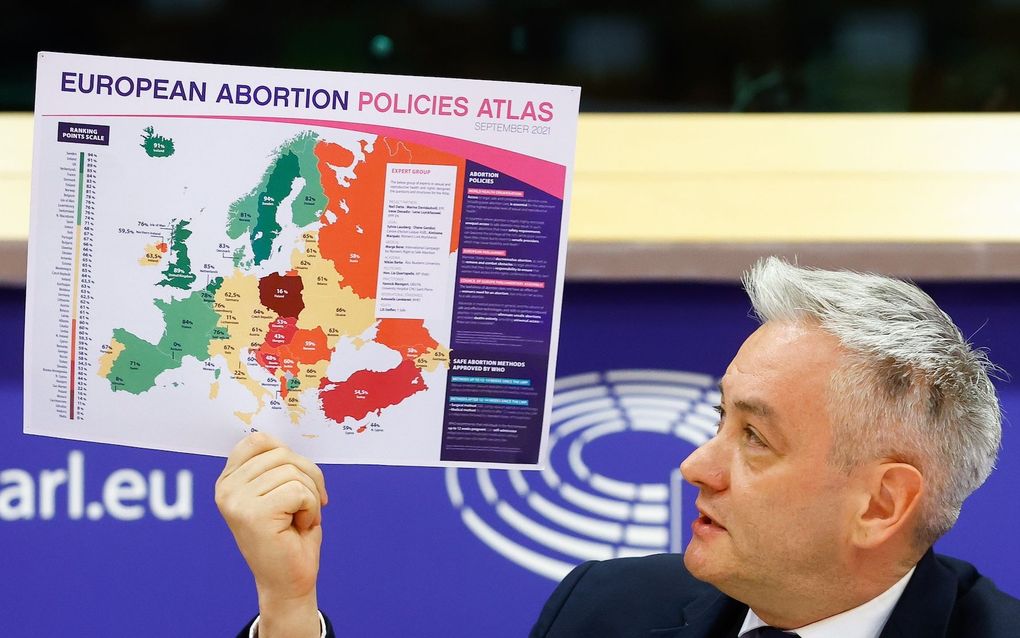
Photo from an earlier abortion debate in the European Parliament in 2022. Photo EPA, Stephanie Lecocq
European Union
The European Parliament voted to adopt abortion to become a basic right in the European treaties on Thursday. On the one hand, this vote is symbolic. On the other hand, there is no doubt that this will have influence.
For some, it might sound strange. The European Convention on Human Rights (ECHR) says quite clearly (article 2): “Everyone’s right to life shall be protected by law. No one shall be deprived of his life intentionally”. The EU Charter of Fundamental Rights says it even shorter: “Everyone has the right to life.”
However, as far as the members of the European Parliament are concerned, this treaty should be amended with a clause that makes clear that unborn life should not be guaranteed this protection. It is the woman who decides about that. For every one of us, life is what’s called an unalienable right. That means, this right cannot be taken from us. But this does not apply to the unborn.
The EP voted with 336 votes for a resolution in which the Commission is asked to change the EU Charter and so guarantee that everyone has the right to “bodily autonomy, to free, informed, full and universal access to sexual and reproductive health and rights, and to all related healthcare services without discrimination, including access to safe and legal abortion”. 163 MEPs voted against and 39 abstained.
The resolution also calls on the Commission to ensure that all obstacles to having an abortion are removed. Vulnerable women and girls should also have free access to contraceptive methods, the proposal also states. As far as the European Parliament is concerned, organisations that fight against gender equality and women’s rights should no longer receive EU funding. The Parliament calls to Poland and Malta, which have abortion bans, to fully decriminalise abortion.
The context of this resolution is clear. Already in January 2022, at the start of the French presidency of the Union, President Macron spoke in the European Parliament in favour of abortion in the Charter.
Later that year, in May, the US Supreme Court decided to topple the decision on Roe vs Wade, which had guaranteed abortion as a federal right since 1973. That event in America still has an enormous effect in Europe, where supporters of the right to abortion fear that a comparable thing can happen here as well.
Earlier this year, the French national parliament voted to enshrine the right to abortion in their national constitution. The resolution refers to that several times.
For the supporters of abortion, “bodily autonomy” is a fundamental human right. Women should decide for themselves to be pregnant or not, and should have the ability to terminate the pregnancy.
Nonetheless, some reminded the EU that abortion has always been seen as a national matter. “The EU has no say about abortion; this is up to the member states”, the Dutch Reformed Bert-Jan Ruissen said.
His Christian Union colleague Anja Haga said: “We have made clear agreements about what the EU does and what it does not. Abortion is clearly not part of this, and absolutely should not be,” said Haga.
After the vote, the Roman Catholic bishops showed themselves “saddened”, as Vatican News wrote. “Abortion cannot be considered a fundamental right, because “a fundamental right” is “the right to life”, they said.
The European pro-life movement One of Us expressed “deep concern” about the result of the vote.
The resolution is a call to the European Commission. It is now up to the Commission to respond.
If abortion were included as a fundamental right in the EU Charter, member states would no longer be allowed to ban this procedure. To date, abortion is prohibited mainly in Malta and Poland. And a country like Hungary, which introduced what’s called a “heartbeat clause”, would meet strong opposition.
However, the Commission does not seem eager to follow the European Parliament’s call. The right to abortion is a responsibility of the Member States, European Commissioner Elisa Ferreira (Cohesion and Reforms) emphasised already in March during a debate on including abortion as a fundamental right.
Moreover, Ferreira stressed that the revision of the Charter would require unanimous support from all 27 member states. It is known that the EU leaders are hesitant to open treaties, because it is complicated for them to agree about a text.
However, the European Commissioner noted, “over the past five years, the Commission has demonstrated its commitment to making progress in the field of women’s rights.” Ferreira emphasised: “She will continue to do this within her powers.”
These last sentences illustrate that a vote in the European Parliament is not without weight. Legally, it might not be decisive. But politically, no stronger signal could have been given than Thursday’s. To anyone, it is clear now what the representatives of the EU population want: a guarantee of free sexual and reproductive rights. No doubt, this will influence national and EU policy.
Related Articles



